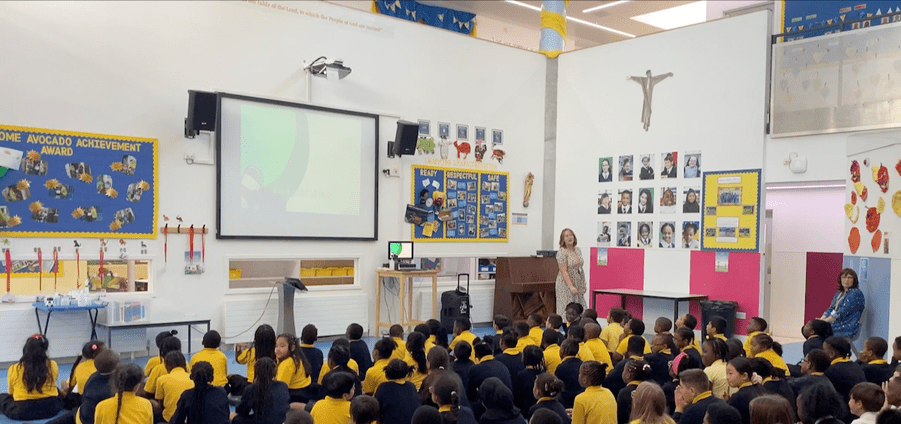By, Aleka Gutzmore, Anu Omideyi and Rev. Laura Luz
May 2020 and the world seems to erupt again on race, demonstrations, vigils and calls to action. Things are exploding on social media, but difficult to handle in our Sunday Schools.
How, in the midst of a pandemic, with fewer opportunities to see children and young people face to face, with fewer volunteers and still fewer relevant resources, were we going to engage young people on this? And not just on our watch in London, but in schools and churches across our country which are under resourced and yet also needed this opportunity?
Out of this conversation We are One was born.
The aim was always for children to be able to learn and ask questions about Godly justice; to equip children with Biblical knowledge, wisdom and insight.
We knew most churches didn’t have professionals who had training around hosting conversations about race and that an easy-to-use resource was needed.
Our collective experience with children had taught us that ownership is key to engagement. And so, singer songwriter Anu Omideyi created a karaoke, backing and instrumental track based on biblical insight from which children and young people can run their own performances, dance moves and presentations.
Some children at St Matthew’s Academy Lewisham learning the song:
@easy_songs Year 6 have started learning the lyrics to In His Image! Lovely singing Year 6! #LettingPupilsLightShine #Lewisham pic.twitter.com/cEnJ49oBG0
— St Matthew Academy KS2 (@StMattAcadKS2) September 28, 2021
Accompanying animated videos and lesson plans were created to equip a Sunday School teacher with little or no time to prep. These include Bible passages, conversation points, physical movement, scenarios, games, and links to school curriculum for teachers. We looked for every way to make it as easy as possible to begin these difficult discussions.
The response has been overwhelming, reaching over 1,500 children. 100% of teachers and children interviewed said that the resources helped them to develop an understanding of racial issues, respond to racism and make positive choices for themselves and for others.
More than anything, We are One has found a way to begin these discussions in any church context, big or small, and continue them in a meaningful way that shines God’s love. According to the children, it is working.
“It makes me feel like I am an everyday person and that my colour makes me special”.
“It made me feel special to God and to others and do my best [sic] to be kinder to others”.
“It made me feel loved and beautiful. This song to me means that God loves us no matter what and we are perfect in his image. This also means that no matter how we look or where we are from we are loved”.
“It made me feel happy and proud of myself and that it does not matter how you look and some people are not being treated the same”.
Teachers saw children “grow in confidence”, “increase in knowledge of the Christian faith”, “work towards positive mental health”, “increase knowledge of the bible”, “increase in musical skill” and “develop spiritually”.
Leaders reported that it allowed them to “facilitate difficult discussions”. All those interviewed found the lesson plans externally helpful and would share the resource with a colleague or friend. One respondent said, “Fabulous lesson plans, song, music, graphics – cannot sing praises enough.”
Everybody, black, white, brown, should feel empowered to teach and begin these discussions. We are One is only one answer, one resource, but it’s one way in which these often difficult and awkward discussions become more open, more natural, and more a part of everyday church. What else might we create?
For more info check out www.difficultdiscussionseasysongs.com/churches-and-schools.


